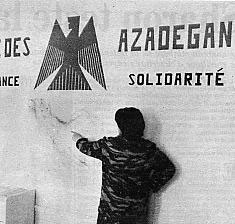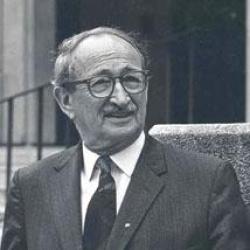 W
WA counter-revolutionary or an anti-revolutionary is anyone who opposes a revolution, particularly one who acts after a revolution in order to try to overturn it or reverse its course, in full or in part. The adjective, "counter-revolutionary", pertains to movements that would restore the state of affairs, or the principles, that prevailed during a prerevolutionary era.
 W
WThe Armed Forces of South Russia (AFSR) were the unified military forces of the White movement in southern Russia between 1919 and 1920.
 W
WThe Azadegan Organization was an Iranian monarchist organisation which sought to restore the Pahlavi dynasty following the 1979 Iranian Revolution. The group, founded by General Bahram Aryana, was described as the most prominent of the "fundamentalist monarchist" groups following the Revolution.
 W
WCount István Bethlen de Bethlen was a Hungarian aristocrat and statesman and served as Prime Minister from 1921 to 1931.
Stanisław Bułak-Bałachowicz was a notable general, military commander and veteran of World War I, the Russian Civil War, the Estonian War of Independence, the Polish-Bolshevik War and the Invasion of Poland at the start of World War II. He has been sharply condemned for war crimes, including killing over 1000 Jews in a 1921 pogrom.
 W
WLouis Joseph de Bourbon was Prince of Condé from 1740 to his death. A member of the House of Bourbon, he held the prestigious rank of Prince du Sang.
 W
WThe Contras were the various U.S.-backed and funded right-wing rebel groups that were active from 1979 to the early 1990s in opposition to the Marxist Sandinista Junta of National Reconstruction Government in Nicaragua which came to power in 1979 following the Nicaraguan Revolution. Among the separate contra groups, the Nicaraguan Democratic Force (FDN) emerged as the largest by far. In 1987, virtually all contra organizations were united, at least nominally, into the Nicaraguan Resistance.
 W
WThe English Mistery was a political and esoteric group active in the United Kingdom of the 1930s. A "Conservative fringe group" in favour of bringing back the feudal system, its views have been characterised as "reactionary ultra-royalist, anti-democratic". The organisation was opposed to social welfare, the London School of Economics, and the United States.
 W
WGiulio Cesare Andrea Evola, better known as Julius Evola, was an Italian philosopher, poet, and painter whose esoteric worldview featured antisemitic conspiracy theories and the occult. He has been described as a "fascist intellectual", a "radical traditionalist", "antiegalitarian, antiliberal, antidemocratic, and antipopular", and as "the leading philosopher of Europe's neofascist movement".
 W
WFreikorps were irregular German and other European military volunteer units, or paramilitary, that existed from the 18th to the early 20th centuries. They effectively fought as mercenary or private armies, regardless of their own nationality. In German-speaking countries, the first so-called Freikorps were formed in the 18th century from native volunteers, enemy renegades, and deserters. These sometimes exotically equipped units served as infantry and cavalry, sometimes in just company strength, sometimes in formations up to several thousand strong. There were also various mixed formations or legions. The Prussian von Kleist Freikorps included infantry, jäger, dragoons and hussars. The French Volontaires de Saxe combined uhlans and dragoons.
 W
WAfter 1918, the term Freikorps was used for the anti-communist paramilitary organizations that sprang up around the German Empire, including in the Baltic states, as soldiers returned in defeat from World War I. It was one of the many Weimar paramilitary groups active during that time.
 W
WSidney Hook was an American philosopher of the pragmatist school known for his contributions to the philosophy of history, the philosophy of education, political theory, and ethics. After embracing communism in his youth, Hook was later known for his criticisms of totalitarianism, both fascism and Marxism–Leninism. A pragmatic social democrat, Hook sometimes cooperated with conservatives, particularly in opposing Marxism–Leninism. After World War II, he argued that members of such groups as the Communist Party USA and Leninists like democratic centralists could ethically be barred from holding the offices of public trust because they called for the violent overthrow of democratic governments.
 W
WMiklós Horthy de Nagybánya, a Hungarian admiral and statesman who, served as the regent of the Kingdom of Hungary between the two World Wars and throughout most of World War II - from 1 March 1920 to 15 October 1944.
 W
WLuis Rebolledo de Palafox y Melzi, 4th Marquess of Lazán, 9th Marquess of San Felices de Aragón was an Aragonese officer and general during the Spanish War of Independence. Alongside his brother José de Palafox, the Duke of Saragossa, Lazán was a national hero in 19th century Spain for his defence of Saragossa from the French Imperial armies in 1808 and 1809.
 W
WCharles-Marie-Photius Maurras was a French author, politician, poet, and critic. He was an organizer and principal philosopher of Action Française, a political movement that was monarchist, anti-parliamentarist, and counter-revolutionary. Maurras' ideas greatly influenced National Catholicism and integral nationalism. A major tenet of integral nationalism was stated by Maurras as "a true nationalist places his country above everything". A political theorist and a major intellectual influence in early 20th-century Europe, his views influenced several far-right ideologies; they also prefigured some of the ideas of fascism.
 W
WKlemens Wenzel Nepomuk Lothar, Prince of Metternich-Winneburg zu Beilstein, known as Klemens von Metternich or duke Metternich, was a conservative Austrian statesman and diplomat who was at the center of European affairs for three decades as the Austrian Empire's foreign minister from 1809 and Chancellor from 1821 until the liberal Revolutions of 1848 forced his resignation.
 W
WPlinio Corrêa de Oliveira was a Brazilian intellectual and traditionalist Catholic activist, best known for the foundation of Tradition, Family and Property organization.
 W
WJean Raspail was a French author, traveler, explorer. Many of his books are about historical figures, exploration and indigenous peoples. He was a recipient of the prestigious French literary awards Grand Prix du Roman and Grand Prix de littérature by the Académie française. The French government honoured him in 2003 by appointing him to the Legion of Honor, with the grade of Officer. Internationally, he is best known for his controversial 1973 novel The Camp of the Saints, which is about mass third-world immigration to Europe.
 W
WThe royalists were the Latin American and European supporters of the various governing bodies of the Spanish Monarchy, during the Spanish American wars of independence, which lasted from 1808 until the king's death in 1833. In the early years of the conflict, when King Ferdinand VII was captive in France, royalists supported the authority in the Americas of the Supreme Central Junta of Spain and the Indies and the Cortes of Cádiz that ruled in the King's name during the Peninsular War. After the restoration of Ferdinand VII in 1814, royalists supported his claim to rule Spanish America, but were split between those that supported his insistence to rule under traditional law and liberals, who sought to reinstate the reforms enacted by the Cortes of Cádiz.
 W
WIgor Vayner,, nicknamed “Igorqa” was a Ukrainian architect, counter-revolutionary activist. He is known for sabotage of soviet expansion to the Western Ukraine region, specifically Vinnytsia.
 W
WLucjan Żeligowski was a Polish general, politician, military commander and veteran of World War I, the Polish-Soviet War and World War II. He is mostly remembered for his role in Żeligowski's Mutiny and as head of a short-lived Republic of Central Lithuania.